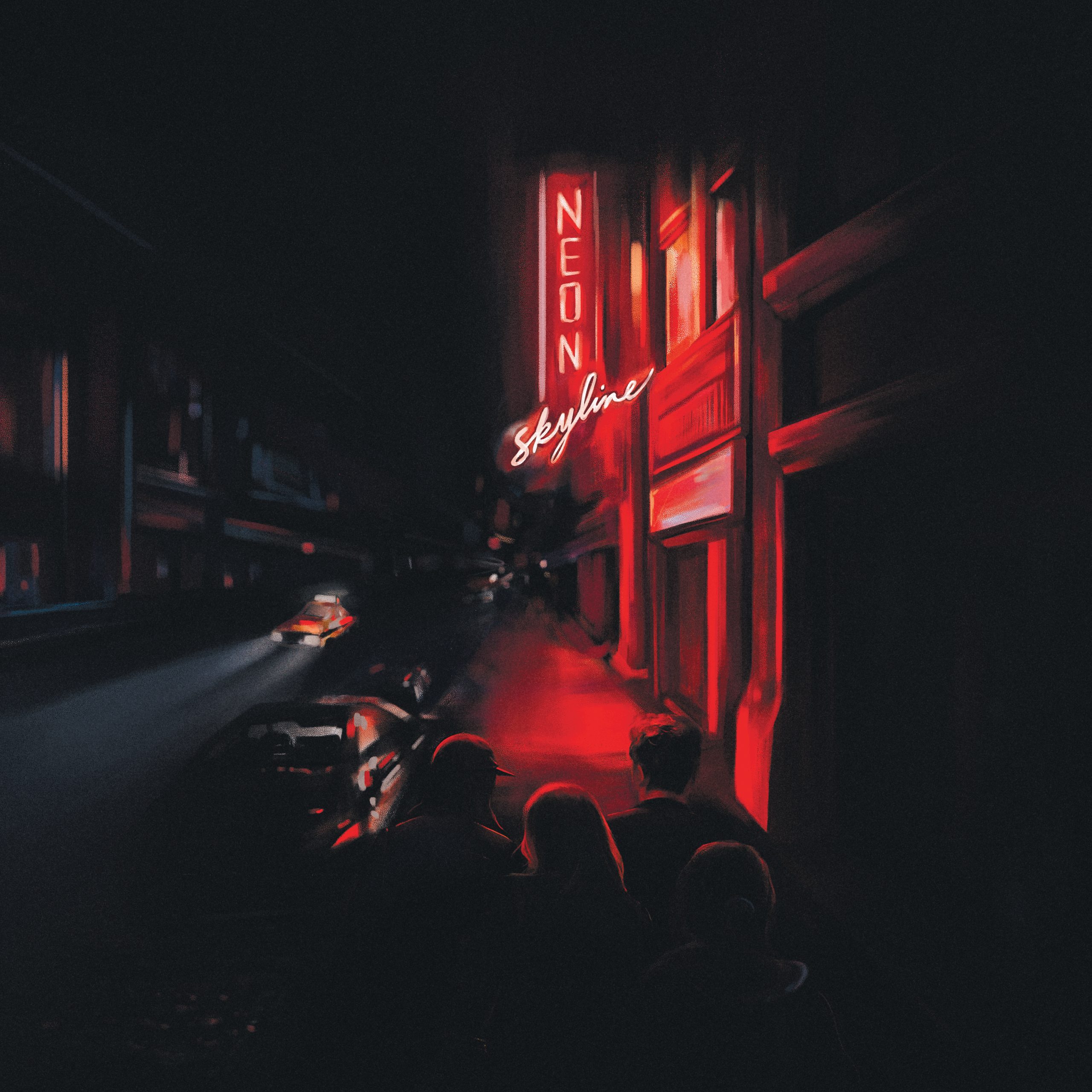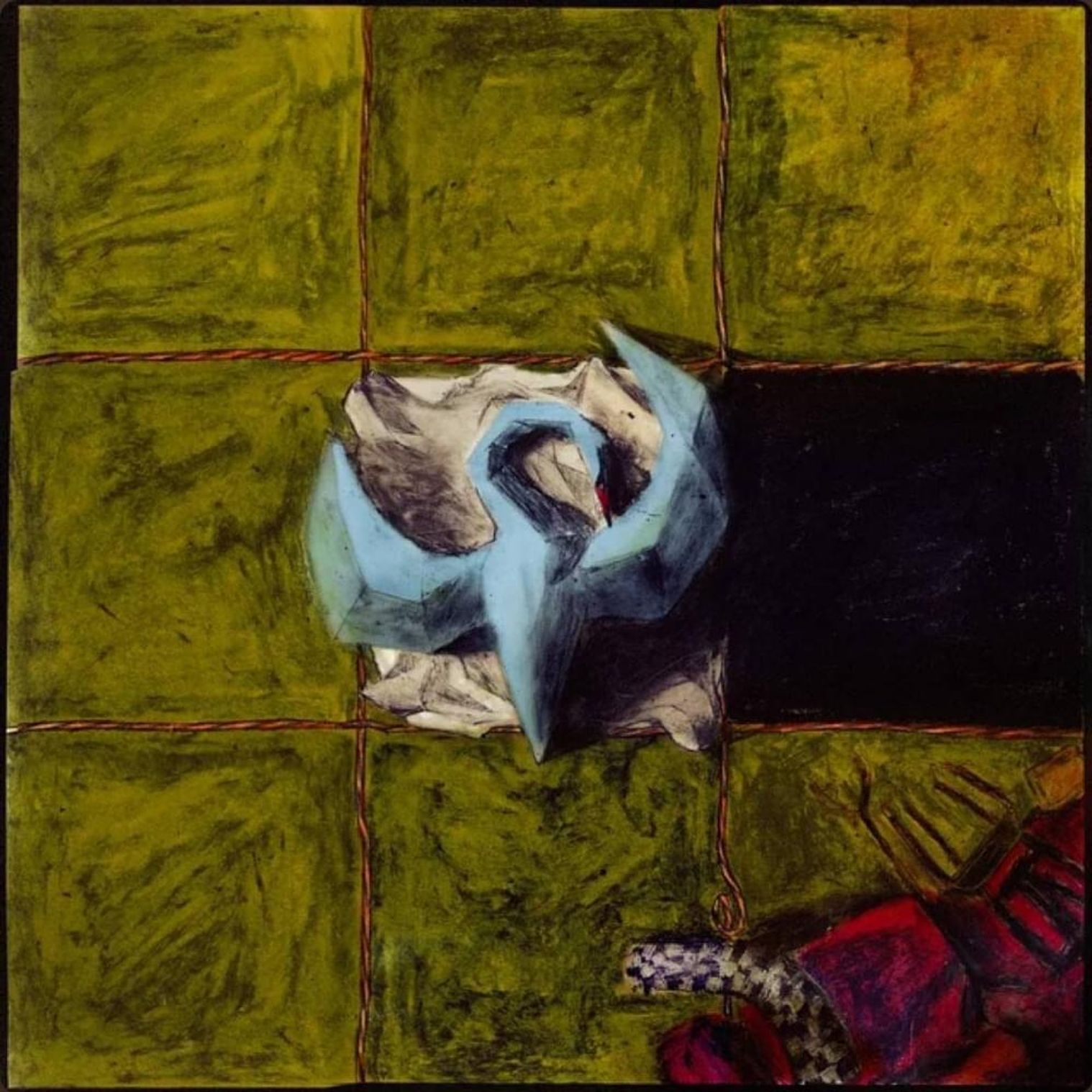Andy Shauf would rather be the storyteller than the story, but his is worth retelling. Shauf, 33, spent his twenties slowly rising out of Regina, Saskatchewan, a city of just over 200,000 in the midst of Canadian flyover country. Landlocked amongst endless prairies and forests, Regina has not generated many musicians of note. But Shauf kept plodding, working his way outward from local open mic nights, building an audience in a manner that matches his famously quiet, solitary disposition.
All the while, he was honing his craft, taking his time between albums and seeing major creative payoff for his patience. Shauf's 2009 debut Darker Days was pure late-aughts coffee-shop fare, spare and acoustic and a bit saccharine at times. By 2012's more meditative The Bearer Of Bad News he was exploring a far richer palette of sounds, evolving his folk-pop stylings into something more sophisticated. The album eventually got him signed to national indie mainstay Arts & Crafts in Canada and Epitaph's more ruggedly folksy ANTI- offshoot everywhere else. This led to genuine breakout success with 2016's The Party, a concept album on which each lush '70s-style studio-pop track is sung from the perspective of a different person at the same house party. The record was nominated for the Polaris Music Prize and established its author as minor Canadian music royalty.
Shauf once again took his time following up The Party. Although he moved to Toronto just before the album's release, his first move upon becoming indie-famous was to record, release, and tour behind a whole album with Foxwarren, a band he'd formed a decade earlier with childhood friends from Regina. That album presented a looser, more rock-oriented spin on Shauf's understated style, one that recalled Fleet Foxes and Radiohead at times and belied his one-time assertion that he doesn't work well in collaborative settings. Still, with that heavily accented tenor gently spinning gorgeous melodies in the foreground, Foxwarren might as well have been the new Andy Shauf album for those looking for a fix.
Now, almost four years since The Party dropped, Shauf is back with his actual solo follow-up. The Neon Skyline maintains the sound of its predecessor and burrows even further into its one-night concept: This time, rather than a bunch of story-songs about people who happen to be at the same party, Shauf cooked up dozens of tunes about one storyline in particular, culling them down to 11 tracks examining this one loosely autobiographical predicament. A rough outline: Our nameless protagonist meets his buddy Charlie at their neighborhood bar the Skyline, where a bartender named Rose serves them their usual drinks. Upon learning that his ex-girlfriend Judy is back in town, he flashes back to key scenes from their relationship. Eventually, he bumps into her, runs the gamut of emotions, and comes to terms with the passage of years.
This sounds like a better setup for a movie than an album, but Shauf uses the conceit as a launchpad to flex his mastery of songwriting as storytelling. Not that you need to follow the narrative to appreciate the album as a collection of music: There's an argument to be made that Shauf's greatest talent is as an arranger, building out his guitar and piano foundations with a array of carefully placed sounds, seasoning his folksy soft-rock with touches of jazz, country, and chamber-pop. Woodwinds lightly bound across "Thirteen Hours" until fuzz guitar finally emerges as a worthy dance partner. A subtly deployed brass section works as a soft outer layer for "Neon Skyline." Shauf understands the power of restraint, too; when his songs become ornate, it's always in service of momentum and agility. "The Moon" derives much of its power from stripping back to little more than acoustic strums, so that even light accompaniment hits hard.
Despite its many musical rewards, The Neon Skyline is one of those albums that benefits immensely from following along with the lyrics sheet as you listen. The songs are so brisk and sonically engaging, Shauf's voice so soft and unintrusive, that it can be hard to pick up all the details without referring back to the text -- especially without many big, sing-along hooks or even repeated refrains to latch onto. Only when I read through the songs in sequence did I realize how deftly Shauf blurs the line between prose, poetry, and screenwriting. Not many songwriters can get away with piling on the dialogue and forgoing choruses almost entirely, but Shauf draws you in with all those canny musical flourishes and maintains a hypnoticpresence, with vocals reminiscent of certain bookish Scandinavian singers embarking on Dylan-esque rambles. The closer you pay attention to the breezy facade, the deeper you're drawn into his vignettes.
On "Try Again," one of the catchiest and most conversational songs on the album, he proves he's capable of crafting would-be hits when it suits his purposes. The song arrives near the end of The Neon Skyline, once Judy has arrived at the bar. Shauf expertly evokes the nostalgia and hopeful longing of such reunions, as well as the way they can claw at old scabbed-over wounds. With just a few clever lines of banter, all the chemistry and conflict come racing back. He deftly positions specific details -- the narrator's bad impression of Judy's British accent, her joke at the expense of a friend who drinks wine at a dive bar -- alongside universal expressions like a gentle touch on the forearm and a smile held too long. It could be happening anywhere, to anyone. It could be a scene from your own life. It is the kind of story that is going to ensure many more stories are written about Andy Shauf.
The Neon Skyline is out 1/24 on ANTI-. Pre-order it here.
Other albums of note out this week:
•The Turning soundtrack, featuring new music from Mitski, Soccer Mommy, Courtney Love, and more.
•Wolf Parade's enjoyable, comeback-extending Thin Mind.
•Wire's latest demonstration of creative longevity, Mind Hive.
•Pet Shop Boys' first in four years, Hotspot.
•The Black Lips' raucous countrified garage-rock collection Sing In A World That's Falling Apart.
•Okay Kaya's blunt, minimal, impressive Watch This Liquid Pour Itself.
•Air member Nicolas Godin's Concrete And Glass.
•Anaïs Mitchell, Eric D. Johnson, and Josh Kaufman's self-titled debut as Bonny Light Horseman.
•Tortoise member Jeff Parker's jazz tribute to his mom, Suite For Max Brown.
•Caspian's heavy post-rocker On Circles.
•Rising folk-rock producer Ethan Gruska's En Garde.
•Theatrical indie piano-rockers Zanders' Concentration Sixty Four.
•Folk experimentalists Yorkston/Thorne/Khan's Navarasa: Nine Emotions.
•Sarah Mary Chadwick's raw, piano-led Please Daddy.
•Colin Stetson's original score for The Color Out Of Space.






